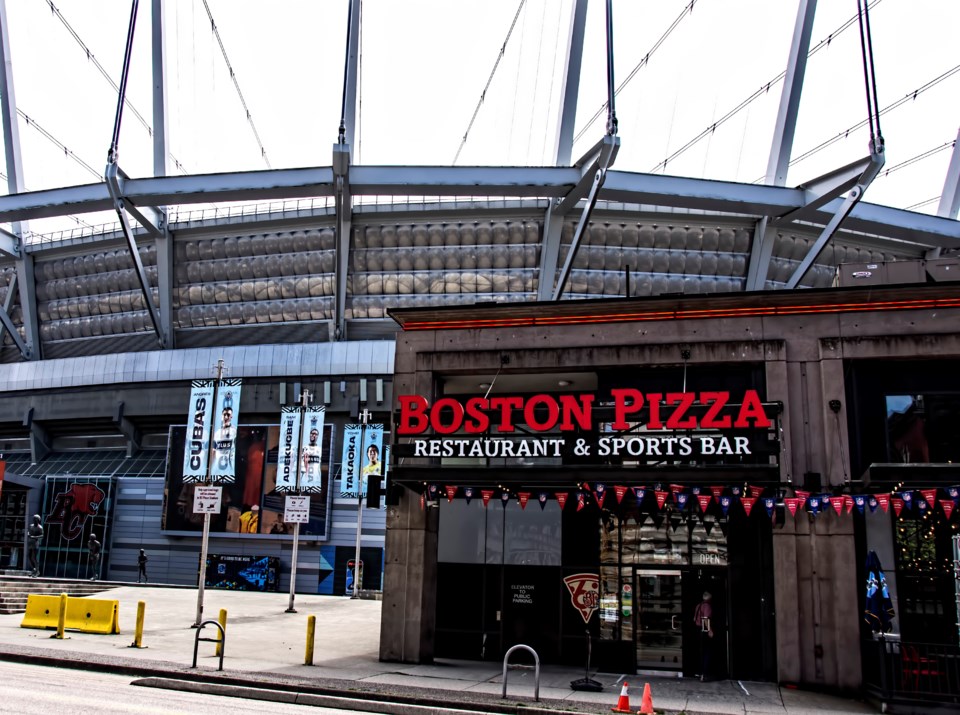Geopolitical tensions have left some Canadian companies with American-sounding names facing unprecedented marketing challenges.
U.S. President Donald Trump’s ongoing insults to Canadian sovereignty, and threats he could call off trade talks, or invoke tariffs, have stoked Canadian patriotism and prompted determination by some consumers to prioritize patronizing Canadian businesses.
Misunderstandings about corporate origins and owners' residences can take place.
Fast-food chain Tim Hortons is widely viewed as a Canadian company, as its head office is in Toronto.
Its corporate owner, however, is Restaurant Brands International Inc. (RBI) (TSX:QSR), which has its head office in Miami.
RBI’s largest shareholder is the New York City-based private equity firm 3G Capital Partners Ltd.
Simon Fraser University marketing professor emeritus Lindsay Meredith told BIV that Tim Hortons will be considered to be a Canadian brand because of marketing and brand recognition through the decades.
"The name is Tim Hortons, and it's the brand," he said. "The branding stops with where that name is. Do a lot of consumers look past the front-end brand name? No, they don't."
The flip of this, however, are the many Canadian companies that have American-sounding brands, with U.S. cities or states in the name.
That, Meredith said, could be a problem.
"You could be totally Canadian sourced, Canadian supplied, but, look, if you have the wrong front-end branding on your name, you could be toast," he said.
Canadian entrepreneurs are doing what they can to set the record straight.
California Closets Vancouver faces the reverse of Tim Hortons' ownership structure, and perhaps some confusion among consumers about its owners.
Its name hints that it is an American company. And while its parent, California Closets, is based in California, the company is fully owned by Ontario-based FirstService Corp. (TSX:FSV).
Stephan Maingot bought franchise rights for B.C. back in 1999 and launched the business in 2000.
The brand had no local presence before he bought those rights, and he said he has expanded the venture to 80 employees in Metro Vancouver.
His California Closets Vancouver operates out of a 20,000-square-foot manufacturing facility near the Amazing Brentwood neighbourhood in Burnaby, and Maingot contracts Canadian suppliers, he told BIV.
“One hundred per cent of the wood that we buy is from Canada, as is our distribution and our accessories supplier,” Maingot said.
California Closets gives its franchisees leeway to find its own suppliers, he added.
“They let us do it in Western Canada because we were so organized and so professional,” Maingot said.
His business mostly manufactures closets and shelving for direct-to-consumer sales, with a target demographic of women between 35 and 55 years old, he said.
Ming Yang owns three Vancouver franchises of American-owned Honolulu Coffee but she told BIV she similarly contracts local suppliers for most of her coffees, which come largely from outside the U.S.
“Kona coffee beans are the only thing we get that is air-shipped from Hawaii every two weeks,” she said.
She said she has put a sign in her stores to say how much her franchises use local suppliers, and she has posted about her franchise’s Canadian roots on Instagram.
Franchisor Honolulu Coffee’s owner, Ed Schultz, is based in the U.S.
Confusion may also linger for companies that are fully B.C.-owned.
Some might think Vancouver-based Boston Pizza is American, given its name.
Founder Gus Agioritis, however, launched the business in Edmonton in 1964. He reportedly chose the name because he thought it would be easy for customers to recognize and recall.
Boston Pizza vice-president of marketing James Kawalecki told BIV that his company’s marketing efforts through the decades have helped ingrain in most of its customers that the venture is Canadian.
Hockey has been at the core of some of that marketing.
Back in 2011, when the Vancouver Canucks played the Boston Bruins in the Stanley Cup Finals, Boston Pizza temporarily rebranded as Vancouver Pizza.

Boston Pizza opened its restaurant near BC Place in 2014 | Chung Chow, BIV
In this year’s Stanley Cup playoffs, the pizza chain produced advertising spots that centred around planning a Stanley Cup parade.
The first-round playoff advertising started off just floating the idea of holding a parade to welcome the return of the Stanley Cup to Canada. The next round’s spots included astronaut Chris Hadfield agreeing to drive a bus in the parade.
By round three, the bus had a new hood ornament, Kawalecki said.
Unfortunately for Edmonton Oilers fans, that parade never materialized.
Another initiative that helped the Boston Pizza brand find traction as being Canadian was its chairman and owner, Jim Treliving, taking part in the long-running CBC pitch show Dragon’s Den, between 2006 and 2020.
Kawalecki said he heard much feedback after the CBC comedy series This Hour Has 22 Minutes aired a sketch soon after Trump started stoking Canadian nationalism.
“Someone said, ‘I guess we can’t go to Boston Pizza anymore,’ and the response was, ‘Nope. They’re Canadian,’” Kawalecki said.
Attention such as that helped the company turn in strong first-quarter results, Kawalecki added.
Indeed, the Boston Pizza Royalties Income Fund’s (TSX:BPF.UN) performance, which mirrors that of the parent company, bears that out.
The fund enjoyed 4.1-per-cent revenue growth in the first three months of this year, according to its financial statements.
The fund’s revenue is based on a slice of sales from 372 franchised Boston Pizza restaurants that are in the fund’s royalty pool.
Looking across the country, there are many other Canadian companies that have American-sounding names that are trying to make clear to customers that they are based north of the border.
Earlier this year Ontario-based Montana’s BBQ & Bar touted “four delicious, convenient, and Canadian-made products” available in grocery stores, including “pulled pork in Texas Bold BBQ sauce.”
Montana’s website highlights the company for being “Canada’s home for BBQ for 30 years.”
Bluesky.com/glenkorstrom.bsky.social




